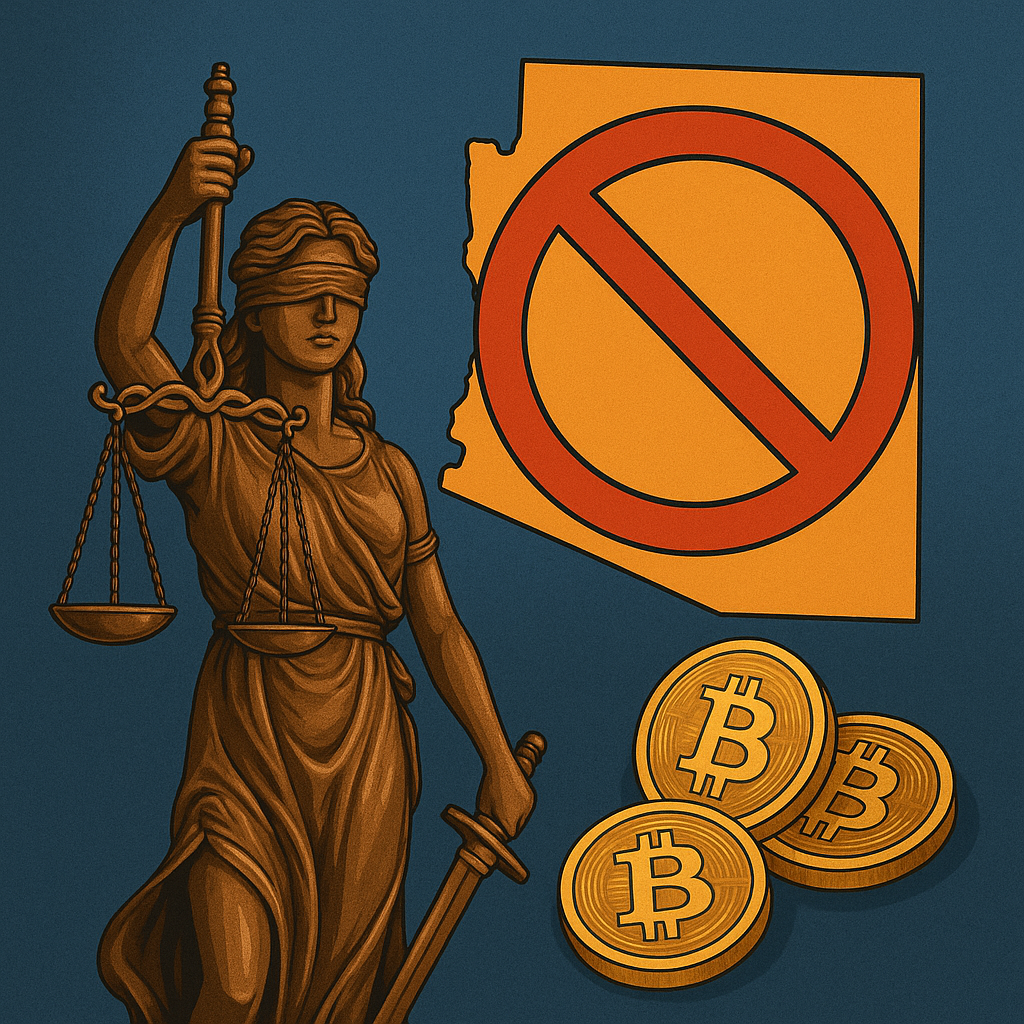Arizona stepped back from state-level cryptocurrency adoption after Governor Katie Hobbs vetoed two significant crypto bills.
Key Vetoes: Digital Asset Reserve and Crypto Tax Payments
Governor Hobbs rejected Senate Bill 1373, which would have created a Digital Assets Strategic Reserve Fund. This fund aimed to allow the state to hold crypto assets gained through seizures or legislative allocations.
She also vetoed Senate Bill 1024, which proposed enabling state agencies to accept cryptocurrencies for taxes, fees, and other payments.
By turning down both proposals, Hobbs signaled Arizona’s cautious stance. Rather than rushing into crypto integration, the state is opting for careful evaluation.
Why Governor Hobbs Rejected the Crypto Bills
Governor Hobbs stated that the volatility of crypto markets made it financially irresponsible to allocate state funds to digital assets. Her decision reflected a broader concern for fiscal stability and public protection.
In addition, she vetoed Senate Bill 1025 just days earlier, on May 3, which aimed to invest state retirement funds in Bitcoin. Hobbs argued that Arizonans’ retirement savings should not be exposed to speculative investments.
Although critics labeled these moves as anti-innovation, Hobbs emphasized risk management. Her administration continues to evaluate blockchain potential without compromising financial safeguards.
A Safer Path: Arizona’s Bitcoin Reserve Fund
On May 7, Hobbs approved House Bill 2749, offering a more secure entry point into crypto. The bill authorizes the state to create a Bitcoin Reserve Fund funded entirely by unclaimed digital assets, such as forgotten crypto wallets.
Arizona law allows the state to claim digital assets if the owner fails to respond to notices for three years. These reclaimed assets will now seed the fund, avoiding the use of taxpayer money or state revenue.
As a result, Arizona becomes the second U.S. state, after New Hampshire, to establish a government-supported Bitcoin fund. However, unlike aggressive investment strategies, Arizona’s approach mirrors federal asset seizure practices, where authorities build crypto holdings through legal forfeitures rather than purchases.
This strategy balances innovation with accountability. It allows Arizona to engage in blockchain adoption without risking public funds.
Arizona Tightens Oversight of Bitcoin ATMs
Governor Hobbs also signed House Bill 2387, which introduces new consumer protections for Bitcoin ATM users.
The law requires ATM operators to:
- Display scam warnings in multiple languages
- Provide receipts with transaction details, fees, and contact information
- Offer 24/7 customer service
- Limit transactions to $2,000 for new users and $10,500 for returning users after 10 days
Victims of fraud may request a full refund, including fees, by submitting proof within 30 days.
These regulations respond to a growing problem. According to the FBI’s 2023 report, Arizona residents lost approximately $127 million to crypto-related scams. Seniors were the most affected demographic.
Other States Take Action
Arizona is not alone in this effort. In March, North Dakota passed legislation requiring ATM licensing, fraud disclosures, and daily transaction caps. Nebraska also enacted the Controllable Electronic Record Fraud Prevention Act, enforcing strict regulations for Bitcoin ATM providers.
At the federal level, Senator Dick Durbin introduced a bill targeting scam prevention and oversight of crypto ATMs across the country.
Frequently Asked Questions (FAQs)
What’s next for crypto legislation in Arizona?
Arizona passed HB 2654, which creates a Blockchain and Cryptocurrency Study Committee. This committee will assess use cases and recommend practical regulatory frameworks.
Does Arizona oppose digital asset innovation?
No. While the state rejected risky crypto bills, it also passed HB 2342, which protects home Bitcoin mining and blockchain node operations from restrictive zoning laws.






